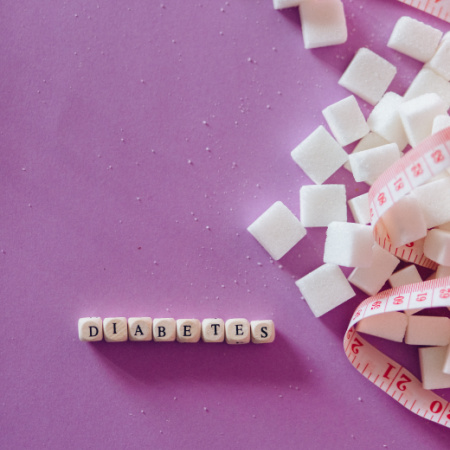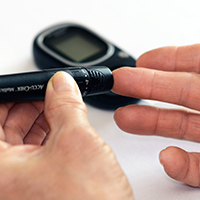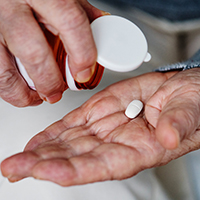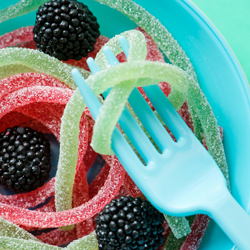- Sleep Hacks: 5 Tricks to Fall Asleep FastAug 20, 2024

Are you one of those people who finds your mind starts to race the moment you lie down to sleep, no matter how exhausted you are?
You’re certainly not alone; about 15% of adults report having trouble falling asleep, and one study shows that more and more Americans struggle to fall and stay asleep.
Here’s the thing: getting quality sleep is essential when achieving your weight loss goals. Lack of sleep is associated with the risk of obesity, and also with poor impulse control, which plays a significant role in food addictions.
So is there anything you can do to help lull your body to sleep — particularly when your mind is racing? - Clever Hacks To Help You Get a Better Night’s SleepDec 19, 2022

A quality night’s rest is one of the best feelings. It makes it much easier to take on the day’s tasks, make time for exercise, think clearly, be productive and even make better nutrition choices.
Unfortunately, many of us may struggle to get quality sleep.
If you're one of those people, you may want to take a peek at our list of things you can try in order to up the quantity (and quality) of those zzzzs! - How To Develop a Healthy Mindset, and WhyMay 9, 2022

Life is all about your mindset. That’s true when it comes to losing weight, too. A recent study from the Society for the Study of Ingestive Behavior found that people who view a meal as a way to be healthy ate significantly smaller portion sizes than those who viewed them as a pleasure or a way to stay full until the next meal.
- 10 Essential Foods for Promoting Heart HealthFeb 7, 2022

In honor of American Heart Month, give your heart some love! Add a few of these essential foods for promoting heart health to your usual menu plan. Chow down on these on a regular basis and you’ll likely do wonders for making sure your heart keeps pumping strong.
- What it Would Take to Burn off That Halloween CandyOct 24, 2021

October is here, and that means lots and lots of candy. And whether you have kids or not, there’s a very high likelihood you’re going to encounter it this time of year.
But before you pop those fun-size bars or miniature peanut butter cups into your mouth without a thought, consider what they mean for your overall goals, because you can't actually burn off unhealthy food choices. But to put things into perspective, let's find out just how much exercise those teeny weenie bars of seemingly insignificant calories are equivalent to. - Weight Loss Can Lower Blood Pressure in People with DiabetesJul 5, 2021

People with prediabetes and Type 2 diabetes are often managing numerous issues, including high blood pressure. Regularly keeping track of what’s what, when it’s time for medications, and how much to take can take its toll on quality of life. But new research reiterates that a healthy diet and weight loss has the potential to turn all that around.
- How Your Weight Plays a Role in Brain FunctionAug 17, 2020

Ever had a day where you feel like your brain just isn’t all there? Maybe even multiple days? Your weight may not only effect how well you feel... but also how well you think! One way to shake off that sluggish feeling, both body and mind, may be to work at shedding some of those unwanted pounds.
- How Time-Restricted Eating Can Make a Big Impact on PrediabetesMar 30, 2020

Have you been diagnosed with prediabetes? It can seem scary and an opportunity to turn things around. Time restricted eating, like intermittent fasting can make a big impact on prediabetes.
- 7 Essential Supplements for People Over Age 50Feb 24, 2020

Did you know that people's happiness levels start to rise after the age of 50? To ensure you’re aging well, at your best and happily, it’s essential you’re getting the proper nutrients — whether from foods or through supplements. This list of the top seven vitamins and minerals for diet, health, and wellness is a great starting point for a discussion with your doctor about how you can make vitamins work for you.
- Is It Better to Get Vitamins from Food or Supplements?Oct 21, 2019

The proper amount of vitamins is critical to overall wellness, but does it matter where those vitamins come from? A recent study from Tufts University explored that very question and this is what they found.
- Do You Know the Warning Signs of Type 2 Diabetes? (And What to Do After You Are Diagnosed)May 20, 2019

You’ve heard the numbers...more than 30 million adults in the U.S. have diabetes. Another 85 million have pre-diabetes. So, how do you know if you’re one of them? And, if so, what are the next steps?
- 6 Steps to Take Right After Learning You Have Type 2 DiabetesFeb 25, 2019

Ok, so you found out you have Type 2 diabetes. That can be devastating news. But it’s also not the end of the world. It’s more than possible to live a long, happy, healthy life -- and maybe even reverse the diagnosis. So, what steps should you take to get to a point where you’re not only surviving -- but thriving -- with a Type 2 diabetes diagnosis?
- Is Sodium Really Bad for Your Health?Nov 5, 2018

There has long been a belief in the health community that high sodium intake can lead to spikes in blood pressure and damage to your heart. But is that really true?
- 100 Years of Weight Loss: A History of Fad Diets and Healthy EatingSep 21, 2017

Dieting has a long, strong history dating back hundreds of years. From the cigarette and liquid diets, to weight-loss pills, low carb, and everything in between, the history of diets is a rich one that sometimes focused on overall wellness, often times was a knee-jerk response that failed to deliver long-term results, and a few times was even downright dangerous. Take a quick journey through time to discover which fads were duds and which might be ripe for a post-millennial reprise.
- New Report Insights: Diabetes and Diet-to-Go's RoleAug 28, 2017

A new report from Gallup-Healthways sheds light on the status of diabetes in the United States — and the news is unsettling. Today, 2.5 million more people in the country have diabetes than in 2008.
Luckily, there are ways to combat diabetes. One, is by achieving and maintaining a healthy weight through a nutritious, balanced diet. And Diet-to-Go may help do just that with a meal plan that is specifically catered to people with pre- and Type 2 diabetes. - Skipping Meals to Reduce Calories? Think Again!Aug 26, 2014
When your doctor or nutritionist says, “Cutting calories is the best way to lose weight,” it is easy to convince yourself that skipping breakfast or working through lunch is the way to go.
- Don't Let a Binge Blow Your DietJan 25, 2011
Dieting doesn't have to be an all-or-nothing proposition. So the next time you slip and scarf down an entire package of Girl Scout cookies or a carton of ice cream, don't throw in the towel, give up and gain back the weight you've lost.You wouldn't trash your car just because you got a dent in the fender, right? So why should you abandon your weight loss goals over a single moment of diet debauchery?Author and registered nurse Linda Spangle knows why we are so quick to call it a day and dive back into overeating. "Whenever you say, 'I...




